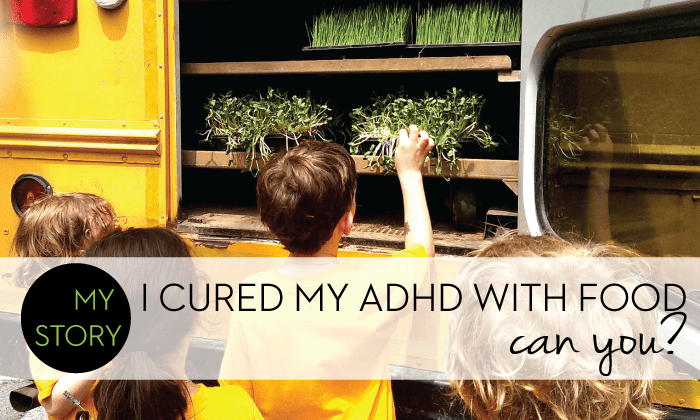I Cured My ADHD with Food. Can You?

If your child is one of the 6.4 million children that have been diagnosed with ADHD*, you’ll want to read this. After dealing with ADHD for most of her life, Jillian made some functional changes to her diet to get healthy and, voila, no more ADHD symptoms! She was blown away. So we sat down with her to get in on her secrets.
What dietary changes did you make to manage your ADHD?
I cut out all packaged foods and created a whole food diet that consisted mainly of veggies, fruits and meats. For example, I enjoyed fresh soups and salads instead of pasta and lunchmeat sandwiches. Doctors were blown away by the changes I reported, and one very prominent doctor even asked me to come work for him providing his ADHD patients with nutritional support.
Did you discover anything shocking on your journey to health?
Few people understand that nutrients are the best line of defense against ADHD. People generally seem less afraid of taking prescriptions (for example: synthetic ingredients, anti-caking agents, artificial colors, preservatives and metals) than they are of eating broccoli and taking supplements!
Why do you think a whole food diet works for so many?
An organic, whole food diet limits added trans-fats, yeast, additives, pesticides or preservatives, and is free of refined sugars and flours. Whole foods work in synergy with your body to naturally improve overall health, without all the other junk getting in the way. Our bodies are constantly bombarded by toxins from the air, water, food supply and our environment. These toxins send the wrong message to our bodies, and create complicated detoxification processes. A whole food diet can help your body to eliminate some of the toxins it is exposed to, that might actually be exacerbating ADHD.
Is ADHD perhaps indicative of any other disorders?
It can be. For really tough cases it's important to dig a little deeper and find the hidden internal stressors: dysbiosis, dysglycemia, food intolerances, infections, autoimmune conditions - just to name a few. You can read about how my diagnosis with Hashimoto's thyroiditis taught me to fine tune my diet even further here.
What is some advice you would give to someone suffering from ADHD?
Be willing to make radical changes for your health: through clinical work with clients I've been able to consistently get results with clients who are willing to make "radical" changes to their diet, and by "radical" I mean eating 6 to 9 cups of veggies a day, along with other modifications such as upgrading their protein sources to clean, sustainably-raised meats. And the right amount of sleep and exercise is crucial as well!
So diet is clearly important! Can you give us a concrete example?
Five years ago when I suggested to parents that their child might benefit from a gluten-free and/or high veggie diet, they looked at me like I was crazy. Now, there's enough success with alternative diets to demand a closer look. Experience with both western medicine and diet has taught me food makes all the difference. Food will take you further.
* http://www.cdc.gov/ncbddd/adhd/data.html
Note: PLEASE consult with your doctor before making any changes to your diet or medications. The material on this site is provided for educational purposes only, and is not to be used for medical advice, diagnosis or treatment.
























